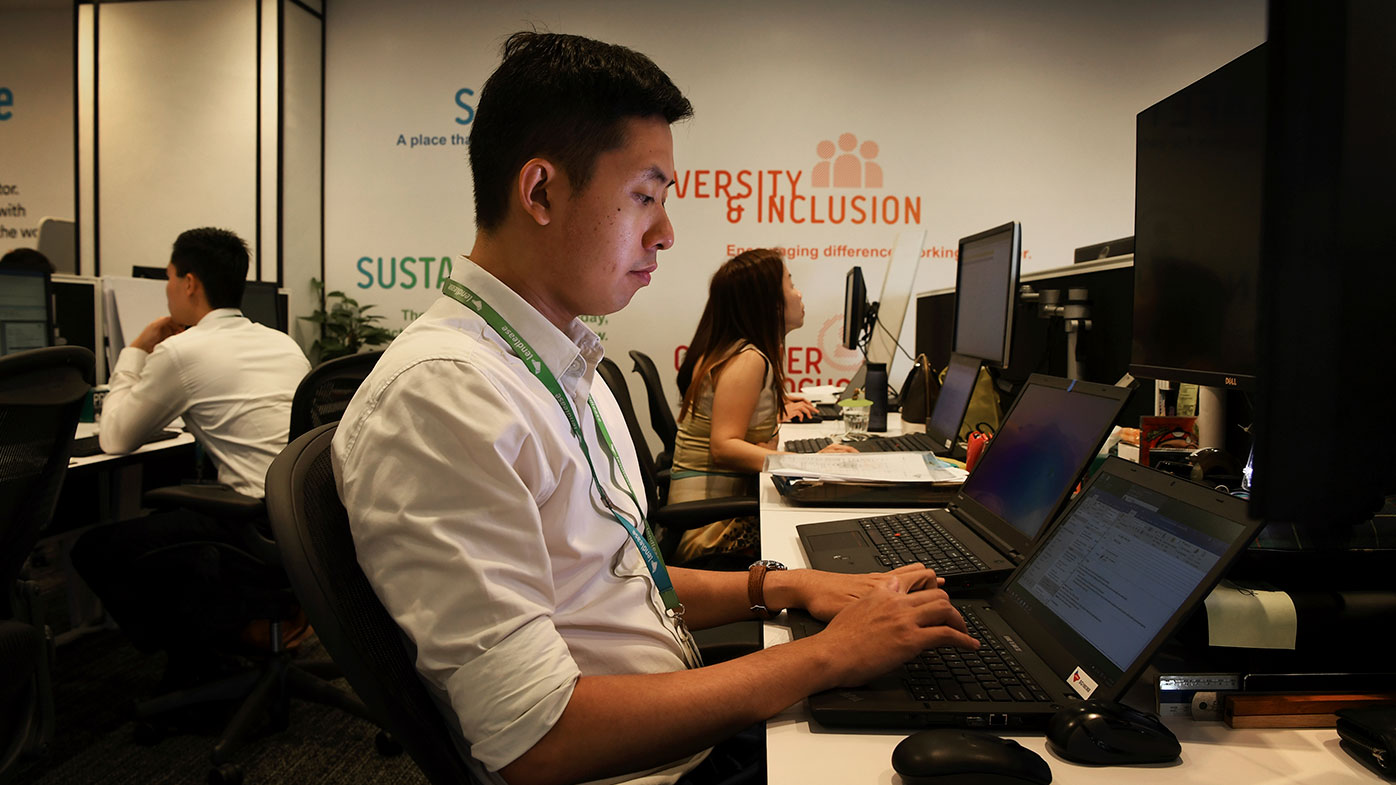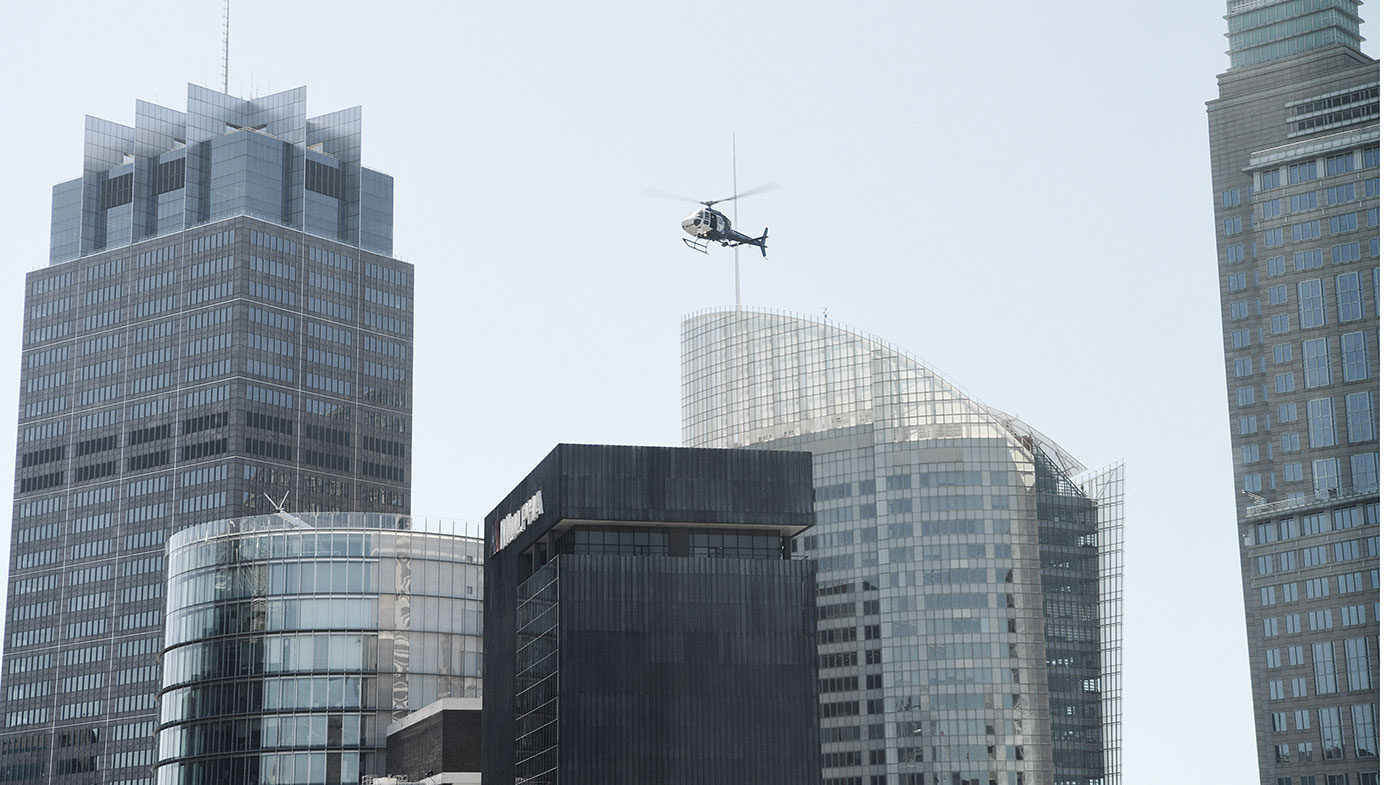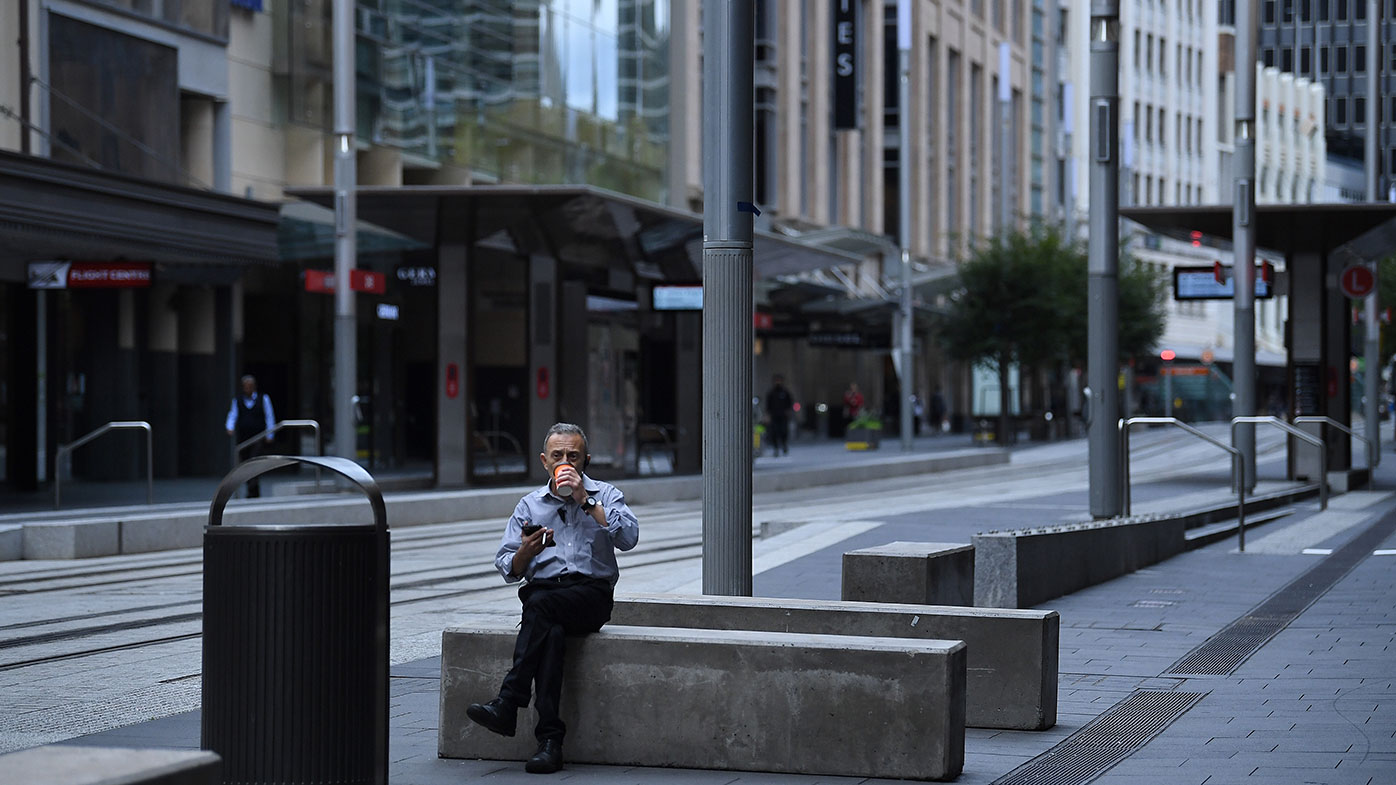Australians will likely see significant changes to hot desking policies and hygiene when they eventually return to the office following the COVID-19 pandemic.
And large numbers of staff working from home on a regular basis is likely to present its own challenges, according to Vanessa Rader, Head of Research for Ray White Commerical.
Despite restrictions being eased around the country this week, it will still be some time before the nation's workforce heads back to the office.
But when it does, Ms Rader says the pandemic will force a rethink of our routines.
"There'll definitely be more of an emphasis on cleaning and hygiene," she told Nine.com.au.
"In the past hot desking has usually required you to plug in your own computer each day, but things like keyboards and the mouse are shared.
"That might be something we do differently.
"Hot desking will probably reduce, but it won't go away.
"But where it continues, companies may have to ensure each staff member has their own keyboard and mouse, rather than sharing."

Ms Rader is also forecasting a change to the layout of offices.
"I think we'll see a reduction in those small meeting rooms in offices," she said.
"They tended to get used a lot by people going in and out to make phone calls, that will probably have to change, because there'll be too much traffic coming and going without any thought to the hygiene side of things."
COVID-19 has put the issue of hygiene front and centre for many people, who may not have given it much thought previously.
"It's not something that I think a lot of people considered in the past. You sort of just assume the cleaner would come through each night, but now people will be looking to demonstrate best practice in the workplace.
"It could become an additional box to tick for the health and safety of your staff.
"There'll be an increased need for more significant cleaning and sterilisation of work surfaces on a more regular basis.
"This is a moment in time that will change the way staff judge their workplace.
"It's going to be a tick-box for an employer if you can provide safeguards for your staff. There might be a ratings systems for it.
"Of course at the moment those that have jobs are happy to have them, but when things return to normal it will be one of those things that staff will look for in an employer of choice, if they can show that they take this seriously."
Many people are currently working from home for the first time, meaning they haven't given a lot of thought to their home office setup.
The expectation is more employees will work remotely in future, but that presents its own obstacles.

"There's going to be other issues that emerge from that," Ms Rader said.
"For example, the requirement for your employer to provide appropriate equipment to work from home.
"Are you providing your staff with an ergonomic chair at home? It was a mad rush with COVID-19, for example not everyone has a keyboard, they might be hunched over a laptop.
"If it's going to be a long-term feature, they will have to spend money to ensure they equip their stuff not only with the technology, but the ergonomic environment.
"Right now you've probably got people in one-bedroom apartments, they might be sitting on the lounge with their laptop, which is understandable given how quickly things happened, but it's not sustainable long-term.

"There'll have to be checks and balances in the future, which may be too hard, or too expensive for some employers."
Ms Rader said vacancy rates for commercial office space in CBD's around Australia has been especially low in recent years, particularly on the east coast.
That vacancy rate will increase in coming years, both through an increase in staff working from home, and a number of businesses going under because of the current crisis.
But while there'll be a softening of the market, the cost of renting isn't expected to change significantly.
"But because vacancy rates have been very low, I don't think that all of a sudden rents are going to fall dramatically," Ms Rader said.
"There'll probably be some correction, but I don't think it will be as vast as some people might think.
"But everything is day by day right now and we don't know what's going to happen.
"We can speculate what might happen, but as we've seen by tomorrow things could be significantly different."
Source: https://ift.tt/3bNNj52
Comments
Post a Comment